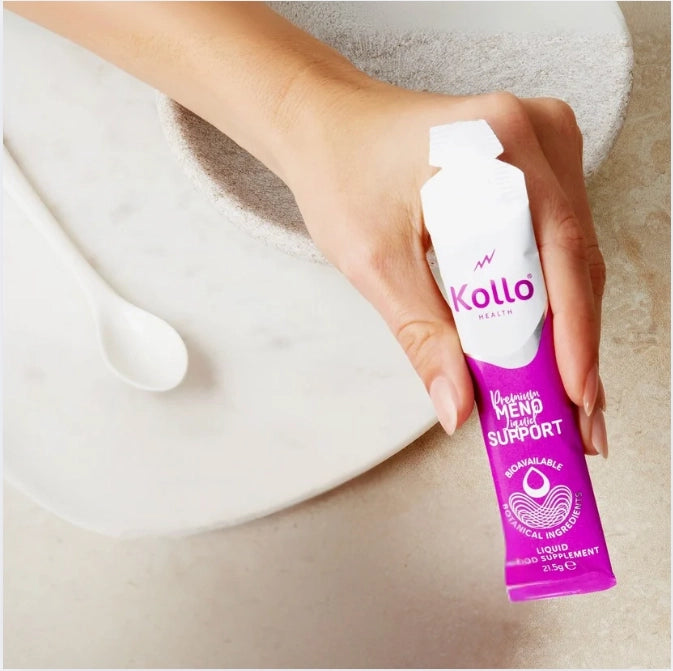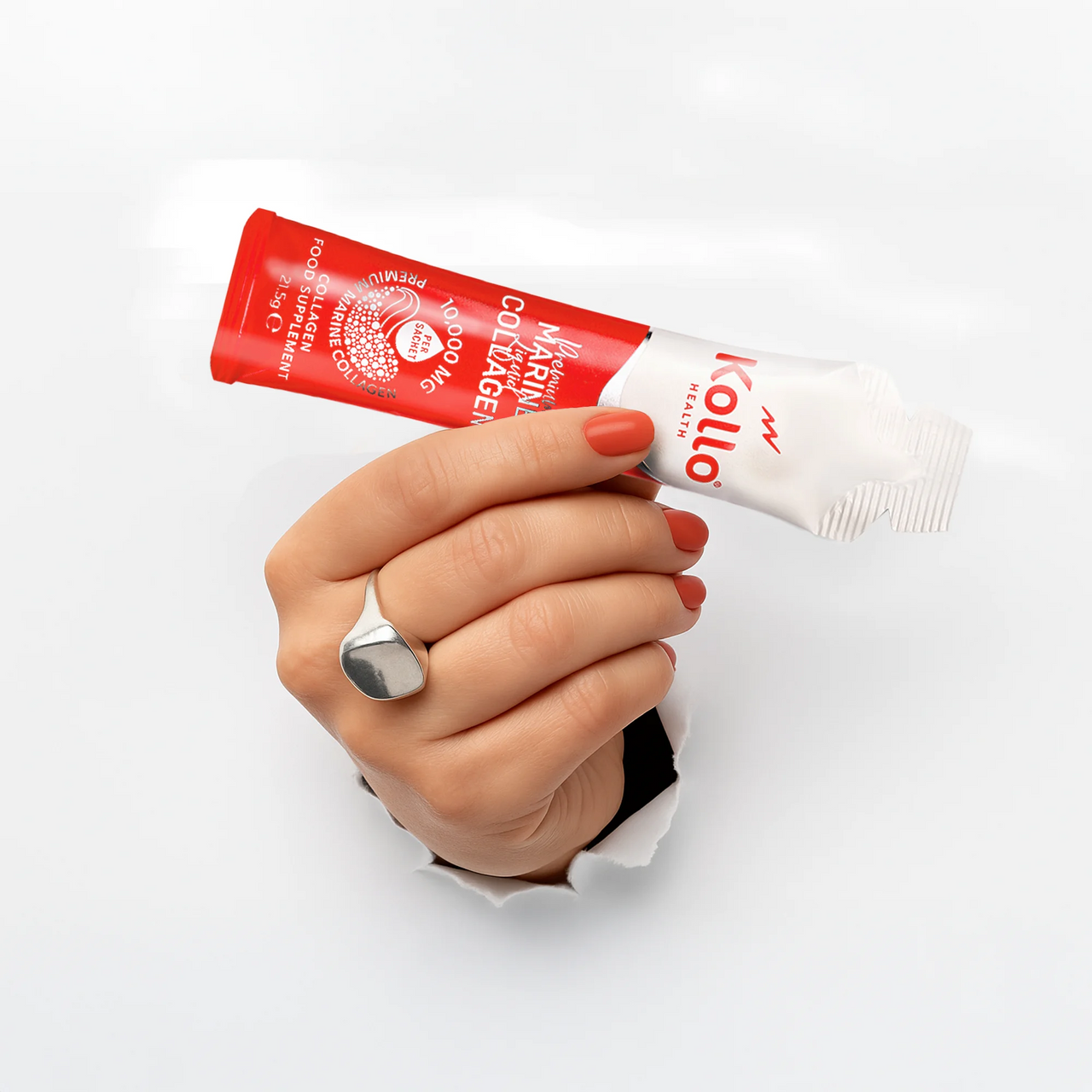Every woman’s journey through menopause is unique and filled with challenges. One day, you might find yourself drenched in sweat, while on another, you can't seem to focus on anything. Some days, you'll be fine! These sudden and unpredictable changes can be frustrating and overwhelming.
Find things to help you navigate these confusing times. For example, menopause supplements are a game-changer.
When you understand how supplements can help you through menopause and the options that you have, you take back control of your life from your hormones.
Introduction
As women approach menopause, they often face symptoms that impact their life. From hot flashes to mood swings, these changes can be challenging to navigate. This blog explores whether using supplements can relieve symptoms during this transition.
What Exactly is Menopause?
Menopause is the stage of a woman's life when she stops having menstrual periods. Women may notice it begins between the ages of 45 and 55. This change signifies the end of her reproductive years. It can last anywhere from 7 to 14 years. Menopause is a gradual decline in the production of oestrogen and progesterone.
Why are these hormones so important? Oestrogen and progesterone play significant roles in regulating various functions in the body. Oestrogen helps control the menstrual cycle and maintains the health of the reproductive system. It also affects other systems in the body, including the cardiovascular system and bone density. Progesterone supports pregnancy and regulates the menstrual cycle alongside oestrogen.
Symptoms of Menopause
Menopause brings about a wide range of symptoms due to hormonal changes. As these hormone levels decrease, the body adjusts to these lower hormone levels. When this occurs, it leads to physical and emotional symptoms associated with menopause. Understanding these changes can help women manage their health during menopause.
Mood Swings
Mood swings are common during menopause. They're caused by fluctuating hormone levels. Women might find themselves feeling irritable or sad without any reason. These emotional changes can affect daily life and relationships. So, finding ways to manage this symptom is critical.
Identify triggers, such as stress or lack of sleep. Knowing what triggers a mood swing will help in understanding this change. Healthy coping mechanisms can make a big difference in maintaining emotional balance. Talk to friends or family for support. Finding time for relaxation and hobbies can also help manage mood swings.
Vaginal Dryness
Many women experience vaginal dryness during menopause. This dryness leads to discomfort and pain during intercourse. Vaginal dryness occurs due to a decline in oestrogen levels. This decline affects the lubrication and elasticity of the vaginal tissues.
Addressing vaginal dryness is essential for enjoying comfortable sex. Over-the-counter lubricants can help a lot. Talking to a healthcare professional for personalised advice is also a good idea.
Reduced Sexual Drive
Not only can vaginal dryness cause a reduced sex drive, but menopause itself leads to a decrease in sexual desire. It impacts intimate relationships as well as personal satisfaction. Finding ways to boost sexual desire can improve quality of life.
One way to help maintain a fulfilling sex life is to have open communication. These discussions can lead to other forms of intimacy. It's common to feel stressed about the lack of sex drive. With communication, you may find stress management techniques that help you and your partner through this time.
Focusing on emotional closeness and spending quality time together can strengthen your bond. Trying new activities or hobbies together can also rekindle excitement and connection.
Trouble Concentrating or with Memory
Cognitive issues such as trouble concentrating or memory lapses are common during menopause. These "brain fog" episodes make everyday tasks more challenging and frustrating.
Staying mentally active can support cognitive health. Activities such as puzzles, reading, or learning new skills will all help in this area. Regular exercise, such as walking or yoga, also improves blood flow to the brain. Increased blood flow leads to better cognitive functions.
Headaches
Headaches can increase in frequency or intensity during menopause. Hormonal fluctuations are often to blame. But, this symptom can also be triggered by certain foods, stress, or lack of sleep.
Managing stress through techniques like meditation or deep breathing exercises will also help. Ensuring adequate hydration and maintaining a regular sleep schedule are essential strategies. Additionally, regular physical activity can reduce the frequency and severity of headaches.
Trouble Sleeping
Many women find it difficult to get a good night's sleep during menopause. Night sweats and hot flashes interrupt sleep. Effective management of these symptoms will improve sleep quality.
Try creating a cool, comfortable sleep environment with lightweight, breathable bedding. Keep the room temperature low. Before bed, practice relaxation techniques like deep breathing, meditation, or gentle stretching.
Limit caffeine and alcohol intake to improve sleep, especially in the evening. Establish a regular sleep schedule by going to bed and waking up at the same time every day.
Joint and Muscle Aches
Joint and muscle aches are common complaints among menopausal women. The decrease in oestrogen levels often leads to inflammation in joints and muscles. Finding appropriate treatments is vital for maintaining an active lifestyle.
Regular exercise, particularly low-impact activities like swimming or yoga, helps reduce discomfort. Strength training exercises support joint health by building muscle around the joints. Over-the-counter pain relievers provide temporary relief.
Maintaining a healthy weight reduces stress on the joints. Eating a diet rich in anti-inflammatory foods will help manage symptoms.
Heavy Sweating
Heavy sweating, especially at night, is a frequent issue during menopause. These episodes are uncomfortable and disrupt sleep. Learning to manage and reduce sweating will improve comfort and quality of life.
Wear breathable fabrics and use lightweight bedding to help keep the body cool. Keep the bedroom at a lower temperature during sleep. Stay hydrated and avoid spicy foods or caffeine in the evening to help reduce night sweats.
Thinning Hair
Thinning hair is another unwelcome symptom of menopause. The reduction in oestrogen often leads to hair loss or thinning. Proper hair care and nutrition play a significant role in managing this issue.
Use hair products, such as sulphate-free products, that are gentle to your hair. Incorporating a balanced diet rich in vitamins and minerals promotes healthier hair. Regular scalp massages can also stimulate hair follicles and improve blood circulation.
Dry Skin
Dry skin becomes more common as oestrogen levels drop. This symptom often leads to itching and discomfort. Keeping the skin moisturised and healthy is essential during this time.
Hyaluronic acid and glycerin in skincare products help maintain skin elasticity and softness. Applying a good moisturiser immediately after bathing locks in moisture. Drinking plenty of water throughout the day keeps the skin hydrated from the inside out.
Avoid long, hot showers, as they strip the skin of natural oils. Using a humidifier in the home adds moisture to the air, helping prevent skin from becoming too dry. Wearing protective clothing during cold or windy weather shields the skin from harsh environmental factors.
Weight Gain
Weight gain, particularly around the abdomen, is a common symptom of menopause. Have you noticed it's harder to lose weight and easier to gain? You can thank your slowing metabolism and hormonal changes for this. All is not lost, though. A balanced diet and regular exercise are vital in managing this symptom.
Eating healthy, nutrient-rich foods helps with weight control. Watch your portion sizes and avoid sugary and fatty foods. Stay active with exercises like walking, running, and weight lifting. These types of exercises will boost your metabolism and keep your muscles strong. Regular exercise helps you manage your weight, lifts your mood, and increases energy.
Loss of Breast Fullness
Another change during menopause is losing breast fullness. Lower oestrogen levels cause the breast tissue to lose firmness and volume. Understanding these changes helps you keep a positive body image.
Wearing supportive bras can improve the shape and look of your breasts. A professional bra fitting can ensure you wear the right size and style for the best support.
Exercises like chest presses, push-ups, and chest flys can strengthen breast muscles. Regular exercise also helps with better posture, making your breasts look better.
Potential Benefits of Menopause Supplements

Menopause supplements offer various benefits. They can provide relief from many symptoms and improve overall well-being. It’s essential to understand their role and effectiveness before choosing one.
Symptom Relief
Just because you're going through menopause doesn't mean you have to suffer. Certain supplements ease menopause symptoms. Liquid menopause supplements help relieve specific symptoms like hot flashes and night sweats.
Some may ask, is there a link between collagen & menopause? Our bodies slow collagen production as we age, leading to symptoms like sagging skin and joint pain. Collagen supplements help with these issues.
Between a quality menopause supplement and liquid collagen supplement, you’ll be able to maintain a youthful appearance and ease menopause symptoms. You can look forward to a more active and symptom-free life.
Mood Stabilisation
Menopause supplements play a role in stabilising mood swings. They help reduce irritability and sadness by supporting hormonal balance. Natural supplements that enhance serotonin levels aid in mood regulation.
Incorporating a quality menopause supplement into your daily routine will help you feel less overwhelmed. Consistent use may also result in a noticeable improvement in your mood.
Bone Health
Bone health is crucial during menopause due to the increased risk of osteoporosis. Supplements containing calcium and vitamin D support bone density and reduce the risk of fractures. Ensuring adequate intake of these nutrients helps maintain strong and healthy bones. The goal is to prevent bone loss and enhance skeletal health. These supplements contribute to a more active and injury-free lifestyle.
Regular exercise combined with these supplements can further enhance bone strength. Including foods rich in calcium and vitamin D in your diet is also beneficial. Together, these strategies can reduce the risk of bone-related issues during menopause.
Hormone Balance
Keeping your hormones balanced is critical to managing menopause symptoms. Supplements can help reduce symptoms and improve your quality of life.
These products could help regulate your hormones. They also will improve your physical and emotional well-being. Using these supplements will help make menopause more comfortable and easier to handle.
Hormone Replacement Therapy (HRT) is also an effective way to manage menopause symptoms. When combined with the right supplements, HRT can offer even greater relief. It helps balance hormones more effectively.
Supplement to Ease Menopause Symptoms

Menopause can be challenging, but understanding your body’s needs and how to support them can make a significant difference. Meno supplements can offer relief from various symptoms. As with any change in your diet, exercise, or vitamins, consulting with a healthcare professional is advised to find the best approach for your unique situation.
Kollo Health offers high-quality liquid menopause supplements to support you through this transition. Discover how our products can help you manage your symptoms and improve your well-being.







